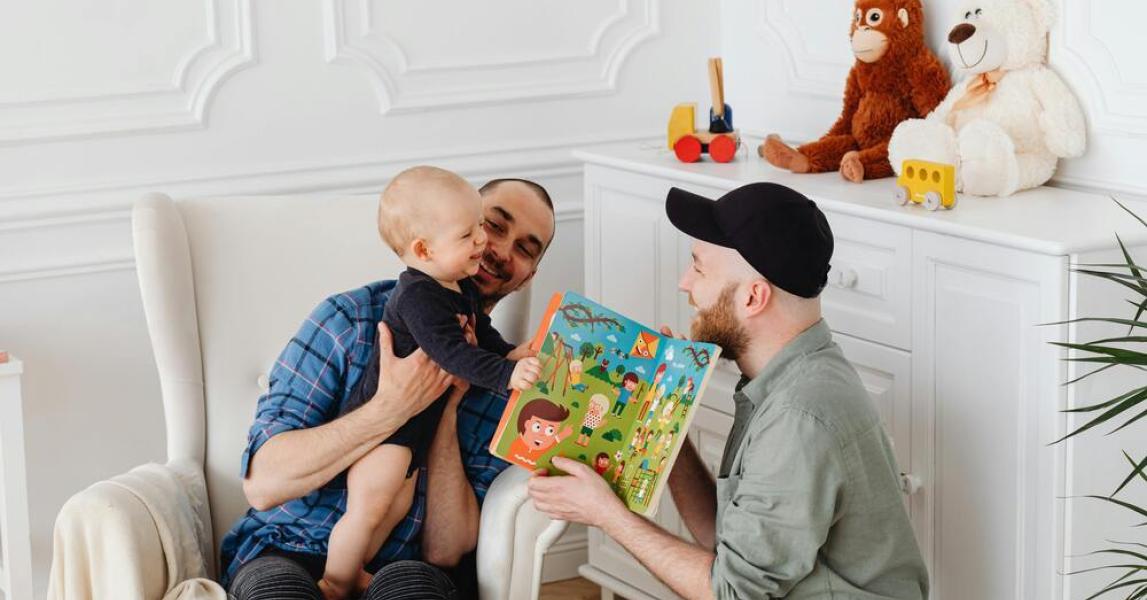An international scoping review regarding the recruitment and assessment of LGBT+ communities in the adoption process
By Lucille Kelsall-Knight and Professor Caroline Bradbury-Jones, School of Nursing & Midwifery, University of Birmingham, Birmingham, UK.
Adoption of children has been a long-standing part of history in most countries across the globe. Since the 1950s in the UK, social care agencies for children and families have been the decision makers determining the viability and social acceptance of family dynamics (Mallon., 2011; Kirton., 2013). People with lesbian, gay, bisexual and transgender (LGBT+) identities are known to become adoptive parents (Hill., 2012; British Association of Adoption and Fostering., 2014; Golombok, Mellish, Jennings, Casey, Tasker, and Lamb., 2014), although the true number is not currently known.
LGBT+ people face discrimination when embarking upon their journey to parenthood, and this is exacerbated with identity intersections (for example disability, ethnicity, and relationship status) (Kelsall-Knight., 2021). Discrimination experienced by lesbian, gay and single parents was documented in early work by Hicks (1996), with details relating to social workers not actively seeking to place an adopted child within a gay family. Widespread discrimination can be attributed to legislation and social pressures which support heteronormativity (Mellish, Jennings, Tasker, Lamb and Golombok., 2013). There is an increasing knowledge base regarding lesbian and gay adopters and foster carers (Cosis-Brown, Sebba and Luke., 2015), however there remains a lack of knowledge surrounding gender minority parents (Brown and Rogers, 2021). Legal rights in parenthood and equality for LGBT+ people is varied internationally. In some countries, such as the United States of America, same-sex relationships were not protected under federal law until 2015. In England and Wales homosexuality was decriminalised in 1967, Scotland followed suit in 1980, and Northern Ireland in 1982.
Following on from this the Local Government Act (1988) was amended to include Section 28, which prohibited the local authority from ‘intentionally promoting homosexuality or publishing material with the intention of promoting homosexuality’ or ‘promoting the teaching in any maintained school of the acceptability of homosexuality as a pretended family relationship’. Following the repeal of Section 28 in 2003, the Civil Partnership Act (2004) became legislation in England and Wales. The subsequent Marriage (Same-Sex Couples) Act (2013) allowed same-sex couples in England to marry, with the legal recognition of same-sex marriage following in Scotland in 2014 (Marriage and Civil Partnership (Scotland) Act 2014) and Northern Ireland in 2019 (Northern Ireland Act 2019). This alteration of marriage law tied in with further progressive law change with regards to same-sex parenting. The swiftness of legal changes has led to both oppressive and progressive opinions co-existing surrounding same-sex relationships and LGBT+ parenting, however this rapid legal change has also been in light of British societal attitudinal shifts. In 1983, 70 percent of the British public believed that sexual relations between two people of the same sex was wrong, however by 2012 35% of the British public held this belief (Park, Bryson, Clery, Curtice and Phillips, 2013).
There is no data regarding British attitudes towards LGBT+ communities available post 2012. All state-run social care organisations, and those in the independent sectors commissioned by the state to provide social care, must actively consider the needs of LGBT+ communities and must not discriminate against anyone on account of the protected characteristic of sexuality or gender (Equality Act, 2010). Homophobia remains present in many UK institutions, with service users and their families reporting prejudiced and discriminatory comments about sexual orientation (Kelsall-Knight and Sudron, 2020).
Changing family constructions has led to a widening of viewpoints surrounding the health and wellbeing of adopted children (Mellish et al., 2013). Controversial views regarding same-sex parenthood exist (Mellish et al., 2013; Golombok et al., 2014), such as perceptions that children raised by same-sex parents will be adversely affected by experiences such as bullying during childhood on account of their parents’ sexuality (Mellish et al., 2013). When voiced by parents and professionals, such oppressive views and comments could have an effect on the emotional health and wellbeing of adopted children. Moreover, pre-placement, discriminatory attitudes towards same-sex parents may serve to further disadvantage already vulnerable children due to a delay in them being placed in adoptive homes. Whilst there is an existing research base regarding LGBT+ people being parents, the focus is predominantly regarding the outcomes for children with same-sex parents. To address this gap, this review explored the experiences of the recruitment and assessment of LGBT+ adopters, internationally.
Download the review
